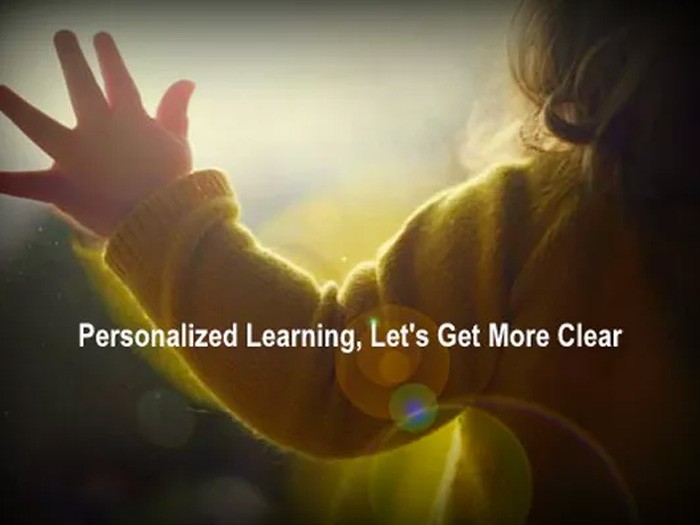This week I read an article on a local mom’s facebook group that reported that Pinellas County schools will try to implement a “competency-based innovation pilot program” aka- a personalized learning program. My initial reaction: Why only in two schools and IT’S ABOUT TIME! As I posted my support, yet slight apprehension because of its funding sources, I was met with some unanticipated push back.
Me: Personalized learning is the way it should be. Every kid is unique, so teach accordingly. It eliminates boredom and frustration and actually gets kids pumped about learning. Schools with this model are already in CA & CO and soon here. However, it will be interesting to watch how the school board attempts to handle.
Caring Mom: Don’t let “personalized learning” fool you. Start reading up on Competency Based Education.
There was polite dialogue back and forth and what we finally established was that her definition of personalized learning was entirely different than mine.
If you are a teacher or someone who has studied education, you know that the ideas of personalization or differentiation as we were taught in college – the simple idea of differentiating the ways that we present information and assess our students based on their needs, have been long established.
-Piaget’s Theory teaches us to understand our student’s place in their cognitive development.
(You can’t teach them certain content until they’re developmentally ready. Letters first – words second.)
-Bloom’s Taxonomy reminds us of the different levels of understanding that we can draw out of our students. (Teachers can challenge them to think more deeply and share their understanding as they’re ready. Instead of just recalling a fact from a reading, analyze two pieces of reading and defend your point of view.)
-Howard Gardner reinforces that our students have a variety of intelligences or ways of thinking.
(Content can be taught in a variety of ways and some students learn better with different approaches. Kids can learn their letters by visually seeing them, drawing them, or singing about them.)
More recently however, there are groups of people who view personalized learning as a means to deliver instruction that meets kids’ differences via technology only. Which is what the mom in the original post was referring to.
Take Sal Khan’s Khan Academy for example. In his 2006 TED talk, he shared that he believed that by simply putting content online, that that would improve and personalize education. He’s changed his tune since stating that technology alone will not reform education. Even bigger plot twist, he opened a school of his own this year that embraces personalized learning beyond just the technology because his own son was finally of school age and he did not want to send him to a traditional school.
Or if you look at the ‘education reform’ that is encouraged here in Pinellas County, you’ll see that over the past few years our teachers have been mandated to use two computer based programs to differentiate instruction, one in math and one in reading. (We’ll save the discussion about how much those cost and how they choose the programs for a different day.) But let’s refocus on the idea that the district mandates that ALL students in a district comprised of 74 elementary schools use the exact same programs. I can assure you that ALL of these students do not learn the same way.
NEITHER of these examples are what I would define as personalized learning and the reality is that theories that we know work best for kids are hardly able to take place in most classrooms.
In my opinion, if you really want to get down to the heart of what personalized learning is, you have to take into account the best educational practices but also the most important aspect- the connection to the unique, individual child. The PERSON behind the learning. Not only their developmental progression but their passions, their interests, their likes, their dislikes, their challenges, their feelings, their successes, their family, their world.
While technology helps us access more information, it is not the solution. Humans still need to feel valued and loved. Humans still need to see the purpose behind their learning. Humans still need to experience and hear feedback in order for their learning to progress. There are ways that we can do things differently in our schools but it boils down to humans understanding one another and acting accordingly.
I will certainly develop this idea and share more examples in the future as I believe that this is what will positively change the game in education, but today I just wanted to be clear. When I refer to personalized or individualized education, I am referring to what will work best for children, not a technology program.


